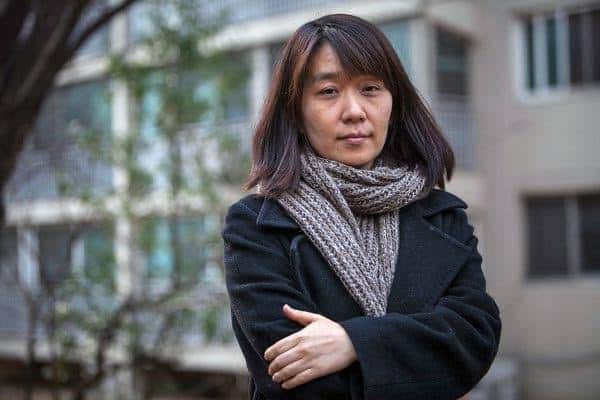Han Kang’s literary success uncovers biases in English-dominated translation discourse. While connecting cultures, translation at times marginalizes non-Western authors, as debates over translators’ agency highlight unequal perceptions. Her case underscores the tensions between English’s global literary authority
With the advent of American hegemony and the century that followed, English has conspicuously ridden the high of being inescapable—a language that follows you everywhere, a golden ticket to the magnificence of the world. The (un)official lingua franca that assimilates into the native cultures, seeps into the literature, and infiltrates the native languages. The power and hegemonic control that English holds is so natural, that it almost seems (is) inevitable to distance oneself from its hold.
In his address to the American Defence Society in 1919, Theodore Roosevelt asserted the importance of English as the only language that has room in America, infusing American nationalism with English and warning against America turning into a “polyglot boarding house.” However, as it turned out, rather than English being threatened by foreign languages, over a century, the foreign (native) languages are at the risk of being lost in the global paramountcy of English.
The force of English is such that everyone has jumped on the bandwagon to adopt English as their own. Tim Parks, a writer and translator, argued that the European nations are anxious that the adoption of English words in their languages may be seriously reshaping their language. Scientific papers are being written in English, which also results in some concepts being difficult to express in the vernacular. The European novels are not only assimilating the English style but are also constructed such that they are easily digestible in an anglophone context.
After Han Kang, a South Korean writer, won the Nobel Prize for literature in 2024 and became the first female writer from Asia to achieve this feat, accolades followed her English translator among the Anglophone readers of the work. The frenzied discussion on the role of translation that followed her win is quite fascinating. Translation definitely is an art in itself that has allowed communication across communities and paved the way to “discover” different literary works and acknowledge the intellectual and artistic profoundness those works hold. The growing culture among translators to create a space for their art might come with the stance that they hold possession of a huge part of the source author’s work. And, with the historical impact that the English language has had on literature, the English translation, for better or for worse, being pronounced as the breakthrough for the literary work, might create a sense of disassociation for the source authors with their text and the text from its original circumstance.
After “The Vegetarian” won the Man Booker Prize in 2016, Debora Smith, the British translator of the work came under fire in Korea for “poorly” translating the work. People pointed out the inconsistencies within the translation. The charges that followed mostly stemmed from what Smith added to the original text rather than what she omitted. Smith, according to critics, created a whole different body of work. It is also interesting to notice that when Jon Fosse, a Norwegian Writer, or Annie Ernaux, a French writer won the 2023 and 2022 Nobel Prize in Literature, respectively, the discussion around the translators was not as profound as it is in the case of Han Kang. Also, when Mo Yan, a Chinese writer, won the Nobel Prize in 2012 accusations were levied against his Swedish translator and an academy member for fixing the Nobel Prize which they heavily benefited from.
Both instances can be seen as two sides of the same coin, creating a conscious yet unconscious sentiment that Asian (Orientalist) writers cannot hold agency over their art—a perception that is not extended to European writers.
The dominance of English as a global lingua franca has undeniably shaped the way literature is created, consumed, and valued. Translation, while connecting cultures and expanding the literary horizons, has also brought into question the agency of non-Western writers over their works. The intricate connection between language, power, and cultural narratives reveals a glaring disparity in how Asian and European writers are perceived in the literary world.
Read Also: Educational Institutions: Secular or Saffron?
Image Credits: The New York Times
Reeba Khan
[email protected]



